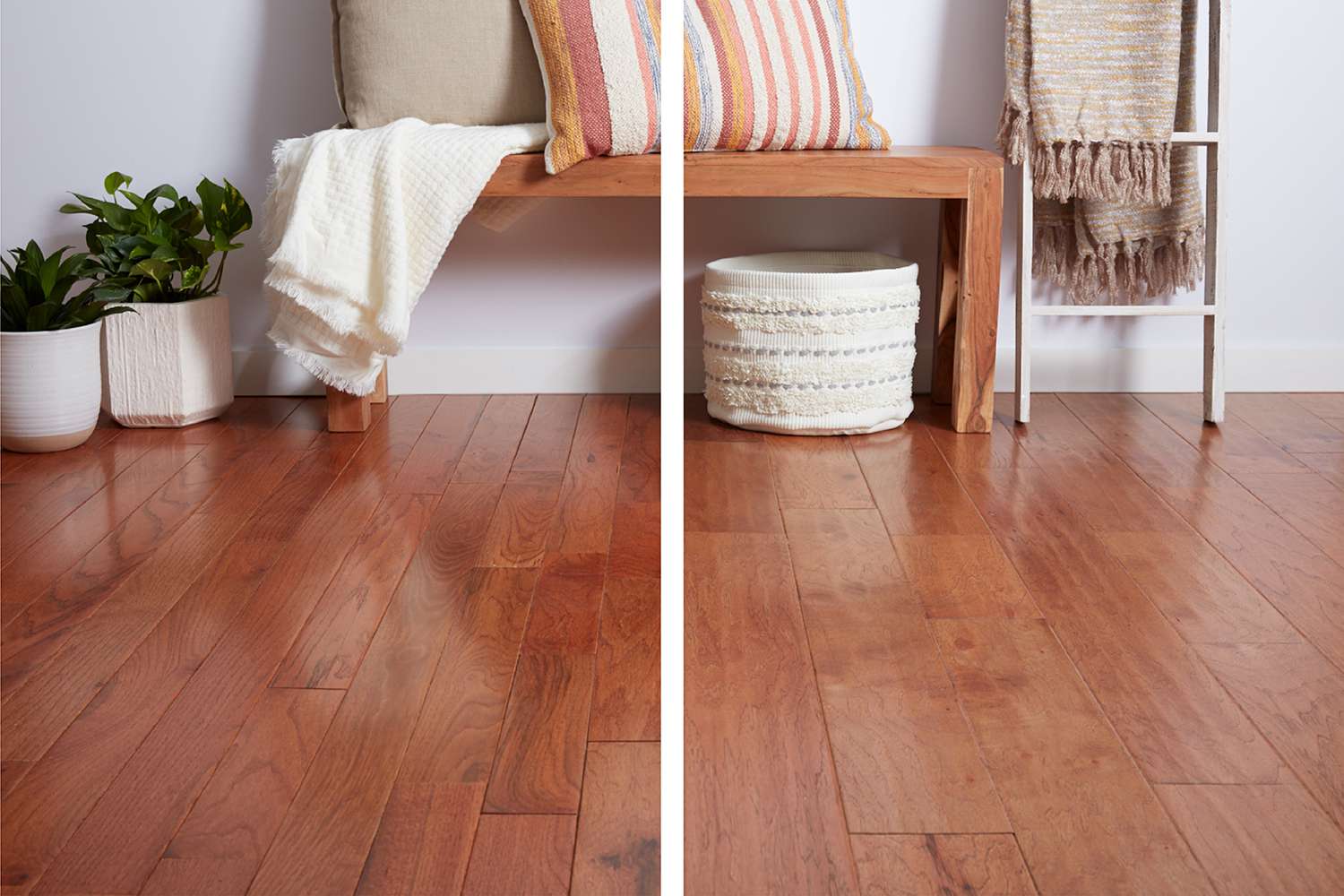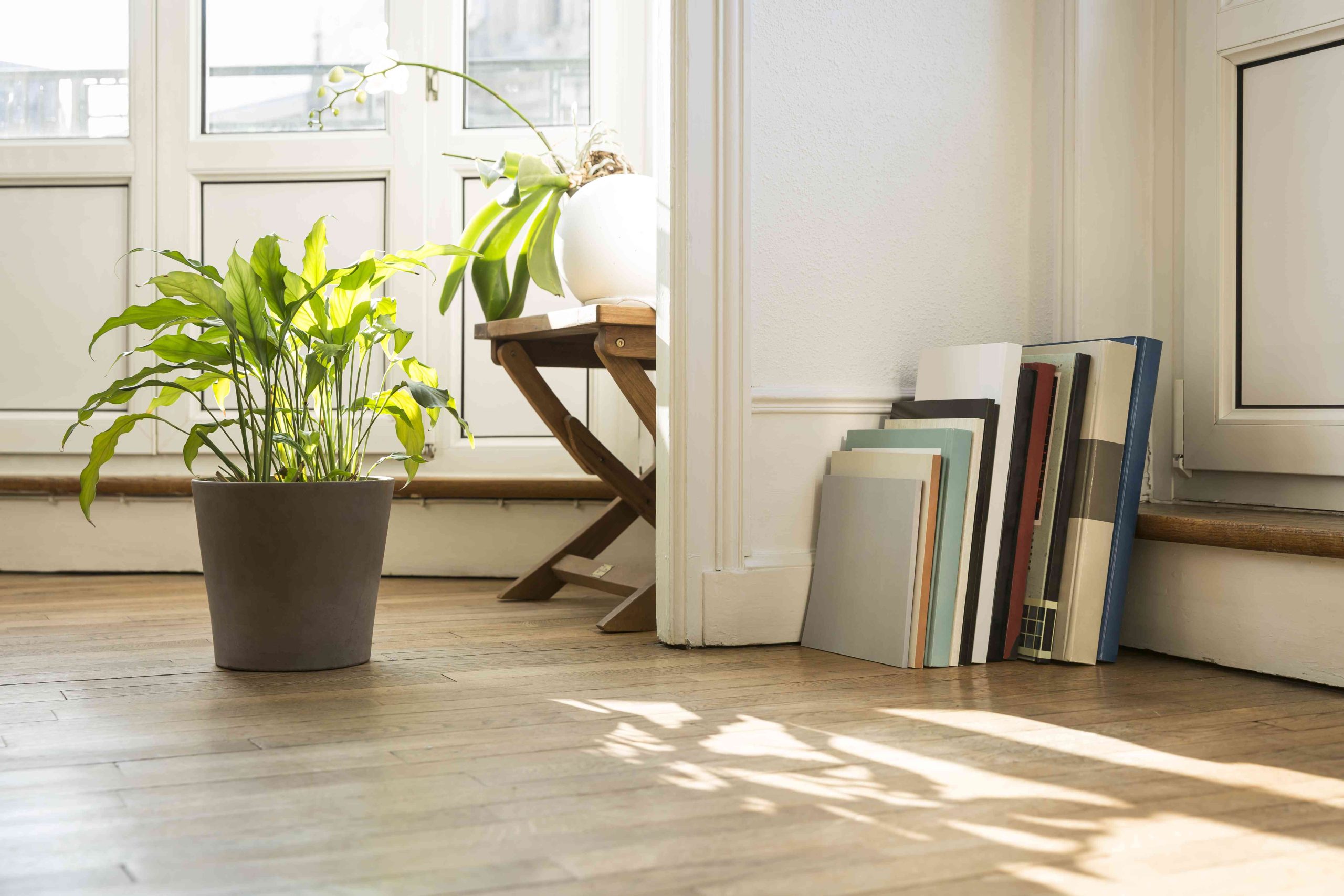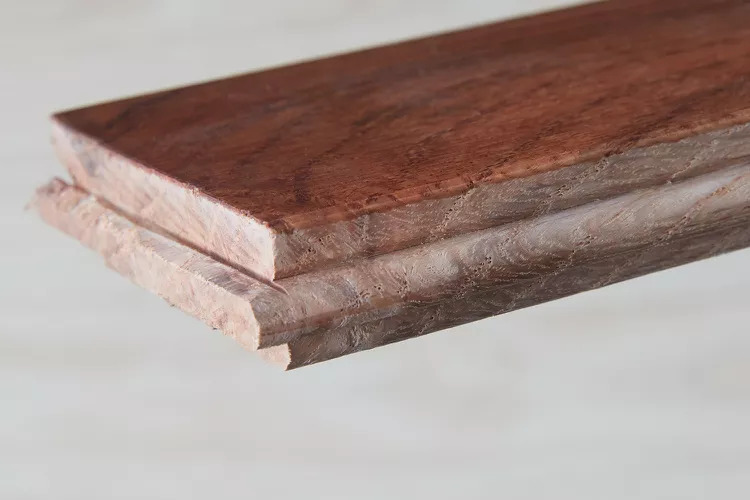Deciding between engineered and hardwood flooring can be a pivotal choice for homeowners looking to either upgrade their space or incorporate timeless appeal into a new construction. Both engineered hardwood and solid wood flooring bring a natural and inviting warmth to interiors, each with its unique benefits and considerations.
At first glance, it might be challenging to distinguish between engineered and traditional hardwood floors since both present the luxurious appearance of real wood. Engineered hardwood consists of a plywood core topped with a layer of hardwood veneer, offering affordability and resilience against environmental changes. Solid hardwood floors are milled from single pieces of wood, such as oak, maple, or walnut, renowned for their durability and the depth of character they bring to a room.
When it comes to appearance and comfort, solid wood floors offer a timeless charm that can significantly increase the aesthetic value of a home. Their ability to be sanded and refinished multiple times allows for a long-lasting fresh look. In contrast, engineered floors provide a practical and versatile alternative, with wider planks and a variety of installation methods that can accommodate different subfloor conditions.
Maintenance and care for both types of flooring require a gentle approach, avoiding water and steam to prevent damage. While solid hardwood has the advantage of being refinishable multiple times over its lifetime, engineered hardwood is also durable but with a limitation on the number of times it can be refinished due to its thinner top wood layer.

- Understanding the Difference: Engineered vs. Solid Wood Flooring. Source: https://www.facebook.com/thespruceofficial/ – thespruce.com
Looking at the lifespan, solid hardwood floors stand out for their longevity, often lasting over a century with proper care, which contrasts with the 20 to 30 years durability expected of engineered hardwood. This disparity underscores the investment value of solid hardwood, despite its initial higher cost and more complex installation requirements.
The cost factor further distinguishes the two, with solid hardwood typically commanding a higher price due not only to the material but also to the installation process, which tends to be more labor-intensive. Engineered wood offers a cost-effective and DIY-friendly alternative, with options for floating, glue-down, or nail-down installations that can suit a wider range of budgets and skill levels.
- <img src=”https://roseville.townsites.org/wp-content/uploads/sites/63/2024/05/664deb2e868a3-scaled.jpeg” alt=”Solid Hardwood Flooring Costs: An Investment in Quality.” data-type=”search”>
- Solid Hardwood Flooring Costs: An Investment in Quality. Source: https://www.facebook.com/thespruceofficial/ – thespruce.com
When considering resale value, both types of flooring can enhance a home’s appeal to potential buyers. The timeless elegance of solid hardwood floors often translates into a stronger selling point and potentially higher home value. Engineered flooring, while also attractive, may not have the same impact on value but is recognized for its practicality and aesthetic versatility.
On the environmental front, both flooring options have their merits and drawbacks. Hardwood floors are sustainable and can be reclaimed or recycled, while engineered wood utilizes less primary wood and makes use of wood byproducts, though concerns about adhesives and off-gassing might be considerations for eco-conscious homeowners.

- The Value of Quality: Choosing Flooring with Future Resale in Mind. Source: https://www.facebook.com/thespruceofficial/ – thespruce.com
In summary, the choice between engineered and hardwood flooring largely depends on the homeowner’s priorities regarding budget, installation considerations, aesthetic goals, and environmental preferences. Solid wood floors might appeal more to those valuing tradition, longevity, and the potential for customization through refinishing. Meanwhile, engineered flooring offers a pragmatic, versatile solution for those seeking ease of installation and resilience against environmental changes, without significantly compromising the aesthetic benefits of real wood.
To make the best decision, homeowners should weigh these factors against their personal tastes, the specifics of their living spaces, and long-term plans for their homes. Whether opting for the rich, historical allure of solid wood or the adaptable, modern appeal of engineered hardwood, both choices promise to enrich living spaces with natural beauty and style.






